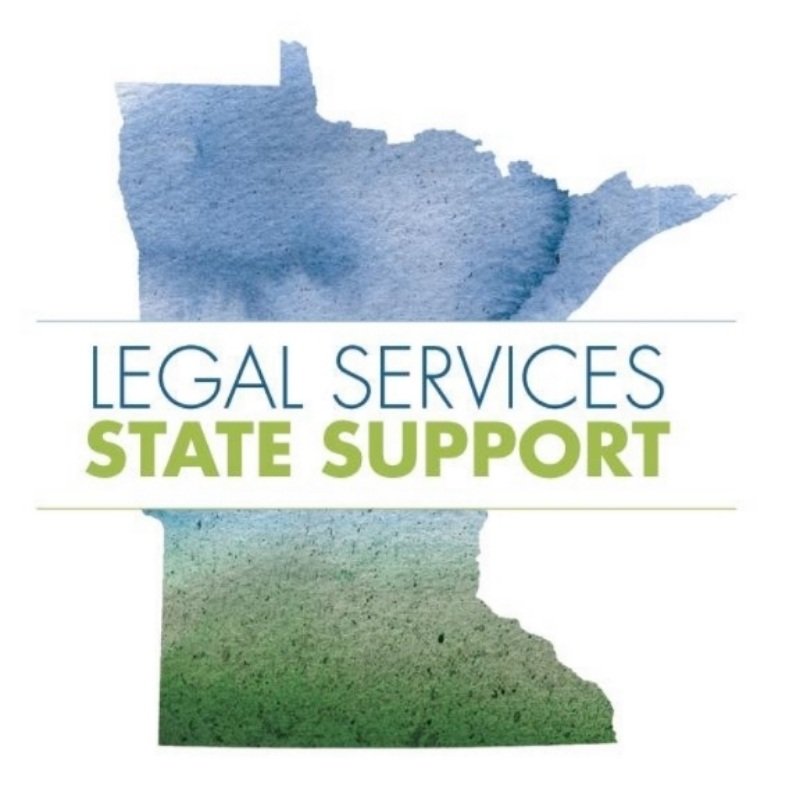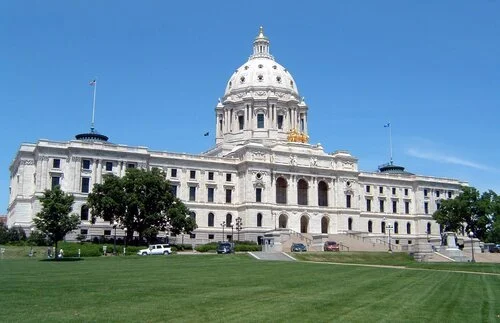To celebrate and honor the achievements and contributions African Americans have made in the United States, Southern Minnesota Regional Legal Services (SMRLS) will recognize some of the extraordinary Black attorneys who have made an impact in Minnesota.
SMRLS starts its Black History Month spotlight series with Jessie Nicholson, CEO of SMRLS. Dubbed “The Torchbearer,” Nicholson is the first black woman to hold the title of CEO at SMRLS and she began helming the organization in 2007. She has been a leader in the Minnesota legal community for almost 4 decades, sitting on several boards including the University of St. Thomas Law School. A stalwart of civil legal aid throughout her career, Nicholson has been recognized locally and nationally for her efforts.
Meet "The Torchbearer" and read more about her and other luminaries such as The Chief, The Activist, The Honorable, and more at Celebrating Black History Month — Southern Minnesota Regional Legal Services (smrls.org).
Increased Awareness and Support for Civil Legal Aid
In recent coverage from Minnesota Lawyer, the overall gaps in the availability of legal aid nationally and in Minnesota were cited, as well as the nonexistence of the right to counsel in civil cases. These access issues, along with the well-known gap in coverage between rural and urban areas, were discussed at a recent webinar hosted by the American Bar Association (ABA). One of the panelists, Radhika Singh, vice president of the National Legal Aid & Defender Association (NLADA) said that legal aid attorneys should be thought of as “human services providers” because of the ripple effect that civil legal problems can have on the health and well-being of people.
In Minnesota specifically, Katy Drahos, access to justice director at the Minnesota State Bar Association (MSBA), noted that statewide access mirrors the nation and that greater Minnesota faces different challenges. “In rural areas, there are fewer attorneys per population and larger service areas. Also, lack of broadband access in some areas can make court appearances challenging for both attorneys and clients. In the metro area, there is a higher volume of cases which makes it tough to meet the need at current funding levels,” Drahos said.
The lack of adequate funding for legal aid has been a perennial problem in Minnesota and throughout the county. A positive sign in Minnesota recently was the state’s historic 85% increase in funding for civil legal aid services, allowing programs to reasonably increase salaries, retain attorneys, and improve services.
Justice North, which serves 11 counties in northeastern Minnesota, has also leveraged resources that became available during the pandemic, such as virtual court. With a service area of about 27,000 square miles, and a staff of 40, virtual court has been a game-changer, according to executive director Dori Rapaport. So has the use of a network of community legal kiosks that allow financially eligible residents to seek legal information and aid in a setting outside their home. “The technology allows people to meaningfully engage with legal matters,” Rapaport said. “Now, we’re in a position where other states are looking to us for how we provide rural access.” Read more in “Civil legal aid draws greater attention, support” from Minnesota Lawyer.
Minnesota at Forefront of Federal Move to Provide More Contract for Deed Protections
Late last year, ProPublica in collaboration with the Sahan Journal published an investigative report about the serious risks posed to Minnesota Somali families by the sale of contracts for deed. Many prospective Somali home buyers looking for increased space, better schools and neighborhoods, and a way avoid paying or profiting from interest (a principle important to members of the East African Muslim community), have taken the non-conventional, contract for deed route. But the potential pitfalls are not always clear, and buyers are often mistaken about the lack of protections and unforeseen consequences they might face.
Now, as a result of the ProPublica-Sahan Journal report, some federal lawmakers, including Senator Tina Smith of Minnesota, are calling for further consumer protections. A recent senate subcommittee hearing led to discussion about how to better shield unwary consumers and whether federal or state laws ought to apply to these deals.
Witnesses testified that low-income buyers, frequently from communities of color who cannot secure traditional mortgages or choose not to use them because of religious beliefs, instead have opted to use contracts for deed. Among those witnesses was Beth Goodell, supervising attorney at Mid-Minnesota Legal Aid (MMLA). Goodell told senators that because state law offers so few protections, buyers are at risk of losing everything.
“My clients tend to have trusted the sellers,” Goodell said. “One of my clients said to me, ‘Why would this seller sell me a house that he knew I couldn’t afford?’ And the answer, ‘The seller would make a lot of money if you fail,’ was beyond her understanding.” Read the full story.
LSNM and Park Rapids Library Partner to Provide Legal Kiosk Services
For those who visit the Park Rapids Area Library in northern Minnesota, a free legal kiosk station is now available to help them address their legal issues. Originally a partnership between Legal Services of Northwest Minnesota (LSNM) and the MAHUBE-OTWA Community Action Partnership, renovations at the community center’s office prompted the suggestion to relocate at the public library.
The library’s branch manager, Jodi Schultz, agreed it was a great location for a kiosk, which is now located in the library’s upstairs meeting room. Kelly Wencl, communication and outreach coordinator for LSNM, said “These legal kiosks are mini-tech centers that are hosted by community partners, and allow for video access to an attorney or courthouses, along with printers, scanners, etc. The kiosks will provide safe access to legal information and legal aid lawyers across our service area.” Wencl noted that there are over 250 legal kiosks across Minnesota with nearly 60 located in northwest Minnesota, including at the Fergus Falls and Bemidji public libraries.
In addition to such uses as attending a court hearing remotely, meeting with a legal aid attorney, printing and emailing documents, or filling out forms, Wencl explained, “the kiosk can be used by community members for a wide variety of things, such as telehealth appointments or job interviews. It is not limited in capacity to only legal topics, information and resources.”
Reservations for the kiosk are recommended and can be made by calling the Park Rapids Library. Read more in Free, legal ‘mini-tech center’ moves into Park Rapids Library.
Public Service Loan Forgiveness Waiver Means You May Qualify Now
Student loans can be a big expense, especially for legal services employees, but there are some programs available that may help reduce that expense. Public Service Loan Forgiveness (PSLF) is one of the biggest options. The program initially went into effect on October 1, 2007, and there have been some challenges in qualifying since that time. Fortunately, there is currently a waiver of some of the program requirements, which makes many more people eligible. That means now is a great time to see if you are eligible and take steps to qualify for PSLF.
To qualify for PSLF:
1) You must be employed by a U.S. federal, state, local or tribal government or not-for-profit organization — if you work at a Minnesota based legal services program funded by LSAC, it’s almost certain that you meet this requirement.
2) Work full-time for that agency or organization (this usually means at least 30 hours per week, but check the studentaid.gov site for more information).
3) Have Direct Loans or consolidate other federal student loans into a Direct Loan (during the limited waiver, you may be able to consolidate previously ineligible federal loans including FFEL or Perkins loans into a Direct Loan to qualify).
4) Be in the right repayment plan — which means an income driven repayment plan. This requirement is waived through October 31, 2022 as part of the limited waiver.
5) Make 120 qualifying payments (essentially 10 years).
To learn more about the temporary waiver, and what specifically is changed, see the Student Aid website: PSLF Waiver Offers Way to Get Closer to Loan Forgiveness | Federal Student Aid.
As part of making sure our community is aware of this program, State Support has created a page of resources to put the key information about PSLF in one place. You can find that page at www.mnlegalservices.org/pslf. This includes a recording of the January 11, 2022, training with Dee Baskin, executive director of Loan Repayment Assistance Program of Minnesota (LRAP-MN), and Heather Vlieger of Mid-Minnesota Legal Aid (MMLA), talking about the PSLF and LRAP programs.





